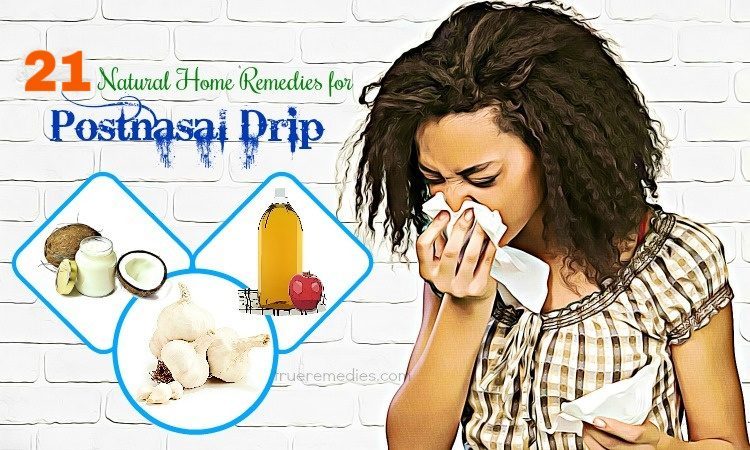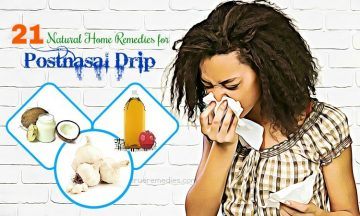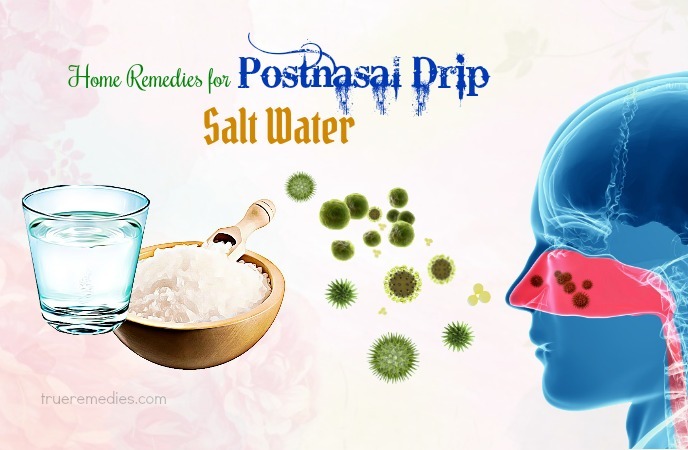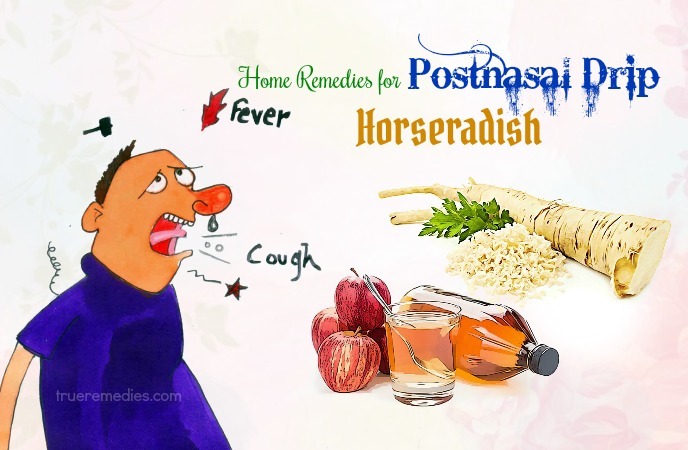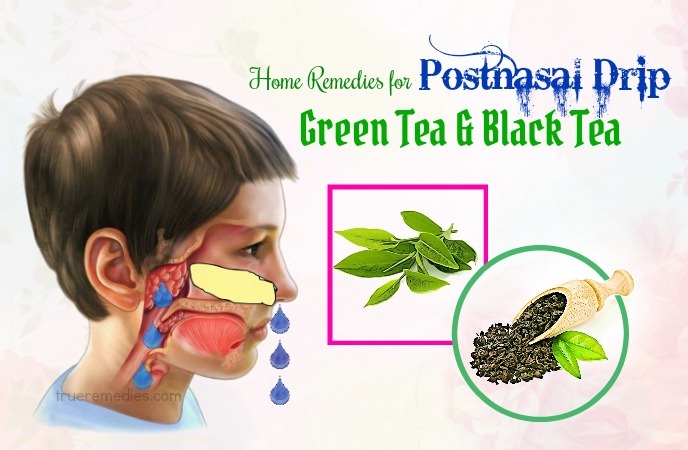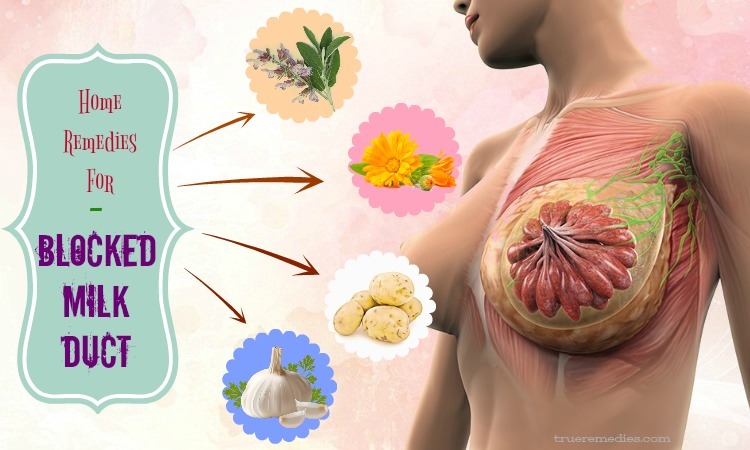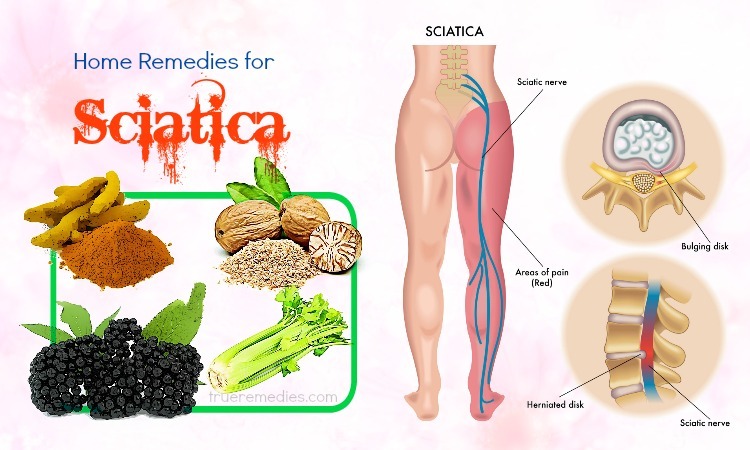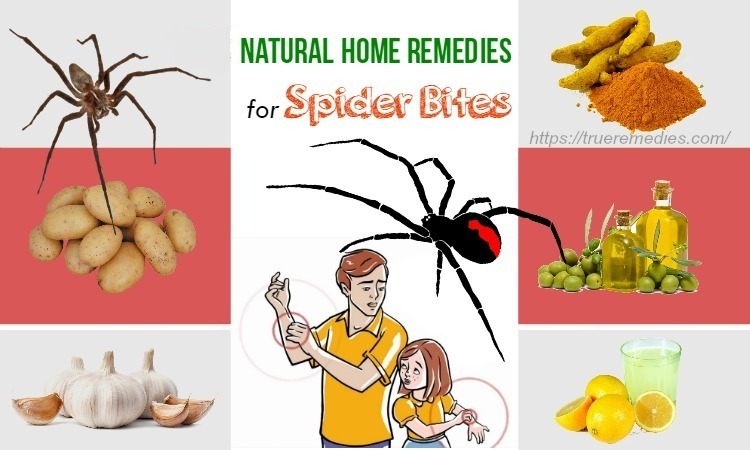updated: 06/30/2019
CONTENTS
Today, the number of people in trouble with postnasal drip is increasing. The postnasal drip is a symptom of some common illnesses that cause the fluid to flow from the nose to the throat. This stimulates coughing and persistent coughing. This disease is one of the main causes of chronic cough, but it is easily misdiagnosed. The reason is that most of the patients with prolonged cough are taken to the respiratory examination, while the cause of the disease is actually in the nose.
The postnasal drip is not dangerous, but it causes a lot of trouble in our lives. It may affect your breathing. You should treat it sooner if you do not want to be self-conscious when communicating. Are you worried about how to prevent or treat the postnasal drip? Don’t worry; the following article will help you. These simple and effective home remedies can be done right at your home. However, before that, let’s learn some basic information about this disease to get the best view on it.
- 19 Effective Home Remedies For Phlegm Cough In Throat
- 21 Best Home Remedies For Wheezing Relief In Adults & Babies
- 16 Home Remedies For Nasal Congestion In Children & Adults
What Is Postnasal Drip?
Postnasal drip[1] is the only international term for the syndrome caused by fluid from the sinus system through the posterior nasal passage down the throat, causing sore throat, cough, and itchy throat.
Postnasal drip may be caused by sinusitis, viral infections, and chills, especially in conjunction with allergic rhinitis, accompanied by symptoms such as rhinitis, nasal itching, nasal irritation, stuffy nose, and sneezing. Other causes include gastric esophagitis, endocrine disorders, and immunodeficiency.
Postnasal drip occurs when extra mucus falls in the back of your nose and throat that is caused by the glands within these areas. People with postnasal drip tend to clear the throat more than normal. It may cause nausea, irritating the throat, lower throat larynx. Actually, postnasal drip syndrome is a reflection of throat mucosal status.
TrueRemedies Partner Solutions

Need a Help from the Leading Expert Online, Available 24/7?
They’re all here and ready to answer your questions online or by phone. Keep asking questions until you get the answer you need.
What Are Common Causes Of Postnasal Drip?
- The Prolonged Cough
Postnasal drip usually occurs in combination with other symptoms of the upper respiratory tract such as the runny nose, nasal congestion, loss of sense of smell, sinus pain, headaches, and bad breath. It may be associated with symptoms of the digestive tract issues such as difficulty swallowing, belching, heartburn, indigestion, and dry throat.
In addition, some cases of postnasal drip cause no symptoms. They only have a prolonged cough. The prolonged cough may accompany by wheezing like asthma. The disease is only diagnosed when the doctor presents a nasopharyngoscope.
- Acute Illnesses
This symptom may be acute if acute illnesses, such as acute sinusitis, or acute upper respiratory tract infections, occur less than 4 weeks. These acute illnesses may also occur for as long as 3 months, called chronic stage. This is due to chronic diseases such as chronic sinusitis, allergic rhinitis, and vesicular rhinorrhea.
Although one of the causes of postnasal drip is sinusitis, sinusitis may easily be missed when the disease appears in the throat. This is a special clinical condition of sinusitis that lacks nasal symptoms. The fluid from the posterior sinus often flows through the nose down to the back of the throat, causing symptoms in the throat. Fluid infiltration from the frontal sinuses, pre-discharge usually exits the front of the nose, causing symptoms of runny nose, nasal congestion, nasal itching, and sneezing.
- Allergic Or Any Other Infectious Disease
Postnasal drip occurs due to exposure to pollen, dust, chemicals, or climate change. People often suffer from postnasal drip at the beginning of the season, due to the weather. At that time, the body’s resistance was not adapted. This problem usually occurs in children.
- Infected By A Virus Such As Common Cold
What Are Symptoms Of Postnasal Drip?
Patients with postnasal drip have the feeling that the fluid flows from the two nasal cavities back to the nasopharynx, down the throat. Patients may feel that the fluid is stagnant in the nasal cavity, or in the nasopharynx, which makes patients uncomfortable. Some patients even describe they have a feeling of phlegm in their throat but cannot cough. This makes them feel like a tumor entangled in the throat.
In other patients, they experience fluid drainage down the throat creating an irritation that causes itchiness, cough suddenly, and a prolonged cough. That makes patients feel uncomfortable, tired, inconvenient, and unconfident in communication.
Postnasal drip is usually white or slightly opaque in color, odorless in cases of post-viral upper respiratory tract infection, nasal sinusitis, rhinitis, or nasopharyngitis due to reflux.
Postnasal drip fluids may also be yellow or green and have a foul odor in cases of sinus infections. However, it is not always possible for patients to spit out this fluid to feel better.
Who Is At Risk Of Postnasal Drip?
Depending on the causes of the disease, patients will apply different treatments. However, if it is a prolonged illness and the condition is worsening, patients should see a doctor for examination and advice.
We have provided some basic information about postnasal drip. If you want to prevent this disease, or you have symptoms of the disease that is mild, you can apply the natural home remedies for postnasal drip that we will introduce below. These effective and natural remedies will help you save both time and costs. If you do not want this disease to affect your life, let’s apply them right away. Take a look at TrueRemedies.com!
Top 21 Natural Home Remedies For Postnasal Drip
1. Salt Water
Among home remedies for postnasal drip, salt water is one of the most effective remedies. When you live in a polluted environment, the nasal mucosa is exposed to a lot of dirt and germs. By normal physiological mechanisms, the dirt and bacteria will be retained in the mucus on the mucous membranes and then transferred to the nasal mucosa by nasal hair cells in the nasal mucosa. Finally, they will go into the esophagus. However, this process is not always good, especially in cases of the environment is too polluted, and the weather is erratic. Keeping the nasal mucus clean, nasal wash with salt water is essential. Saline water is effective in treating upper respiratory conditions, acute upper respiratory tract infections, chronic sinonasal symptoms, according to several studies[2] [3] [4] [5]
This is an effective, painless, and inexpensive treatment for patients with sinusitis, which may help you get rid of postnasal drip and take care of your health[6].
Effects of using warm salt water to rinse your nasal passages:
- Clear mucus and reduce congestion
- Remove allergens and contaminants in the surrounding environment
- Treat chronic sinusitis and allergic rhinitis
- Prevent colds, cough, runny nose, and common headaches
- Dry your nose and make breathing easier
Directions:
- Add 1/2 teaspoon of salt water to a cup of warm water, stirring
- Use warm salt water to rinse your nose at least 2-3 times a day
Remember to keep this habit even after postnasal drip has run out. It will protect you from many of the upcoming health problems.
2. Garlic
Garlic contains a potent antibiotic activity that makes it an effective and safe treatment for various diseases. Most of the health benefits of garlic come from the dense concentration of allicin. Allicin is an organic sulfur compound known for its prevention and treatment of diseases related to bacteria, virus, fungus, microbe, and oxidants[7] [8] [9].
Directions:
- Eat raw garlic
- Use garlic as a spice for everyday meals
- It may also be made into an inhaler by immersing a few cloves of garlic in water for 5 to 10 minutes, milling into a paste, and then inhaling the aroma
- Otherwise, you can roast garlic with a teaspoon of butter for a minute. Then, use them with warm milk
3. Black Garlic
This is another must-try home treatment in this list of home remedies for postnasal drip. In recent years, black garlic is known as a magic medicine to strengthen health, prevent the growth of disease-causing microorganisms, treat sinusitis and allergic rhinitis, and relieve diabetes[10]. This is thanks to the allicin present in garlic. Allicin is a very strong natural antibiotic agent. It may inhibit many types of bacteria that cause sinusitis, such as streptococcus and Haemophilus. In addition, other strong antioxidants such as SAC, polyphenol, and flavonoids in black garlic after fermentation was increased by 6 to 14 times that of raw garlic. This helps stimulate the body’s immune system to produce natural antibodies, kill bacteria, and fight infections of sinusitis and allergic rhinitis[11] [12] [13].
Using black garlic is a new but effective method of treating allergic rhinitis. In addition to allicin and the increased levels of antioxidants, black garlic also contains ethyl acetate (EBG), which reduces and prevents allergic reactions from the pathogenic mechanism. The use of black garlic is much more effective than other folk methods. The immune system and the resistance of patients are improved naturally without taking drugs.
Directions:
- Eat black garlic
- Use black garlic as a spice for everyday dishes
Notes: You should only use 3-5 grams of black garlic a day, i.e., 3-5 garlic cloves a day. For older people, the use of 1-2 grams of black garlic a day is most appropriate.
4. Onion
This remedy is one of the little-known home remedies for postnasal drip. Onions have properties similar to garlic thanks to its sulfur content, making them useful for treating sinus infections – one of the causes of postnasal drip[14]. For mild nasal sinusitis, inhaling the scent of freshly chopped onion may drain your nasal passages.
Method 1.
Directions:
- Wash onion and cut or pound onion
- Wrap the onion into a thin towel
- Place the towel near the nose and inhale and exhale
However, the sulfur from chopped onion may cause discomfort to your eyes. To avoid this, slice an onion and put it in a pot of boiling water. Boil it for five minutes, take a little of the solution into a cup and inhale the aroma to help relieve a stuffy nose or runny nose.
Method 2. Steam
This way is quite time-consuming, but it is very effective. To apply this method, please follow the steps below:
- Peel 2-3 onions and wash them
- Cut the onion into thin slices
- Put the onions in a pot with a little vinegar or clean water to boil
- Place a towel over your head and rinse your nose from the steam in the flyer
5. Apple Cider Vinegar
Apple cider vinegar has a long history of use as a medication for sinusitis. It works very well in the treatment of sinus infections[15]. Firstly, it is a natural antimicrobial, antiviral, antifungal, and anti-inflammatory agent[16] [17]. As a result, apple cider vinegar may kill destructive microorganisms that cause an infection. Secondly, it helps the body maintain healthy pH levels, which helps break down mucus and encourage the healing process. It also strengthens the immune system, which means it may help prevent sinus infections.
Method 1. Apple Cider Vinegar
To prevent sinus infections and prevent recurrent sinusitis, you can take one teaspoon of apple cider vinegar 3 times a day.
Method 2. Apple Cider Vinegar And Water
Use a mixture of 2 teaspoons of apple cider vinegar and 250ml of water or 3/4 cup of apple cider vinegar and 500ml of water for drinking the entire day.
Method 3. Apple Cider Vinegar And Honey
Honey and apple cider vinegar are the perfect choices to support the treatment of sinusitis because the honey contains antibacterial properties[18] [19] that fight against the bacteria causing sinusitis.
Directions:
- Mix 2 teaspoons of apple cider vinegar, 1 teaspoon of honey, and 250 ml of warm water
- Stir well and drink
Using this method on a regular basis will help you get rid of sinusitis and the painful symptoms of sinusitis.
Method 4. Steam With Apple Cider Vinegar
This method is very effective for patients with sinus infections. Apple cider vinegar has antibacterial and antifungal properties. It helps kill bacteria that cause infections in the sinuses.
Directions:
- Mix 1/2 cup of apple cider vinegar with 1/2 of cup water, stirring
- Boil the mixture for a few minutes and then turn off the stove
- Put a towel on your head and rinse your nose from the steam in the flyer
Apply this method many times a day, and you will see its effect for several days. Then, the symptoms associated with sinus infection will completely disappear.
6. Horseradish
Horseradish with high sulfur concentration produces a strong antibiotic effect to treat the symptoms of sinus infection. In addition, it contains antibacterial and antimicrobial properties that are beneficial in treating sinus infections and rhinosinusitis[20] [21] [22]
Method 1. Horseradish
All you need to do is keeping the horseradish in your mouth until the full flavor of this plant helps to remove the mucus from your nose.
In addition, you can treat sinusitis by placing a small amount of crushed horseradish in your mouth and increasing the amount of horseradish for better effect.
Method 2. Horseradish And Onion
To incorporate the properties of onion and horseradish to reduce the symptoms of a sinus infection, please follow the steps below:
- Chop raw horseradish and onion
- Mix about 1/8 cup of horseradish, 1/4 cup of onion, and 1 cup water
- Boil for not more than 5 minutes
- Pour this liquid through a sieve and drink water
Method 3. Horseradish And Apple Cider Vinegar
Combining horseradish and apple cider vinegar will cause the mucus in the sinus cavity to be excreted from the body, increasing circulation in the nasal cavity to help treat sinusitis.
To apply this method, please follow the steps below:
- Rinse 3 horseradish and chop them into pieces
- Put these pieces and 1/2 liter of apple cider vinegar into a bottle
- Leave this mixture for about 10 days. Sometimes you should shake this bottle
- After 10 days, you can use it. Many times a day, you regularly inhale the mixture every 5 minutes or use a soaked cloth or swabs in the mixture to relieve the nose for 5 to 10 minutes
Regularly follow this process for 5 days to relieve headaches and stuffy nose caused by sinusitis. In severe cases, repeat this procedure for the next 5 days. Note that no more than two processes per month.
7. Probiotics
A very good way to deal with sinusitis – one of the causes of postnasal drip – is the use of probiotics[23] [24] [25] [26]. These are good bacteria that are beneficial for the digestive tract and the sinuses. Foods are rich in probiotics such as Greek yogurt, kefir, kombucha, unspoilt miso, and naturally fermented cabbage, kimchi, pickles, etc. Some people even find that the sinus irrigation containing the contents of a probiotic capsule is extremely useful in treating nasal sinusitis and restoring healthy flora.
8. Cayenne Pepper
Almost all of the ancient healing methods in the world have used cayenne pepper as a powerful drug. Cayenne pepper is rich in capsaicin that is proven to help treat many medical problems, including related sinus problems[27] [28]. A study published in Annals of Allergy in August 2011 – “Hen and Immune” has shown that capsaicin may help treat headaches, stuffy nose, and sinus pain.
Add some cayenne peppers to your meal or use it as a supplement food to help speed up the healing process.
Cayenne also has the ability to help you fight the common cold – one of the causes of postnasal drip[29] [30]. Cayenne also acts as an anti-cold and flu agent. The heating effect of cayenne stimulates excretion, thereby reducing congestion and blocked sinuses. Besides, it may cause sneezing to help remove mucus and allergens in the sinuses.
Directions:
- Mix 1/4 teaspoon of cayenne pepper powder, 1/4 teaspoon of ground ginger, 1 teaspoon of honey, and 1 tablespoon of apple cider vinegar
- Add 1/2 cup of warm water to the mixture, stirring
- Drink this mixture twice a day
When you catch a cold, you can also sprinkle cayenne peppers in a soup or salad and add a little cayenne pepper to ginger tea to help get rid of the symptoms easily.
9. Coconut Oil
Coconut oil provides many nutritional and medicinal uses. Coconut oil helps fight bacteria, fungi, viruses, bacteria, and parasites[31] [32] [33]. A paper published in the Asia-Pacific Journal of Tropical Medicine in 2011 shows that coconut oil and coconut kernel have anti-inflammatory effects[34]. They noted that coconut had been used in traditional medicine to combat many diseases caused by bacteria and viruses, including bronchitis, flu, ulcers, gonorrhea, sinusitis, and skin infections.
Method 1. Add Coconut Oil To The Nose
Directions:
- First, you drop two to four drops of coconut oil into both sides of your nostrils
- Then, you cover each side of the nose to help coconut oil run into the sinuses
You should repeat these steps on a regular basis to see the effect of this method.
Method 2. Gargle With Coconut Oil
During the process of rinsing your mouth with coconut oil, the saliva will be released to activate the enzyme. These enzymes remove the toxins produced by bacteria in the mouth.
Directions:
- Put 2-3 teaspoons of coconut oil in your mouth
- Gargle your mouth thoroughly to help coconut oil penetrate through the teeth and gums.
- Rinse mouth for 15 minutes
- Remove the oil in the mouth and gargle your mouth with physiological saline
You should follow the method once a day when you are hungry.
Note that when you gargle your mouth, you should control the amount of coconut oil from left to right, from the inside to outside. That will help to remove the plaque and the food left in the teeth.
10. Green Tea And Black Tea
Green tea leaves have an antibacterial effect to protect against pathogens[35] [36]. Black tea is especially effective against viruses, bacteria, and fungi. A study published in Molecular Nutrition & Food Research in 2006 found that teas, especially green tea and black tea, contain potent antibacterial properties[37].
In a Harvard study, people who drank 5 cups of green tea or black tea a day for 2 weeks had more than 10X good bacteria in their blood than those who drank a hot placebo drink. Therefore, green tea and black tea also work very well against bacteria and germs that cause sinusitis.
11. Curry Grass
This sounds strange when it comes to home remedies for postnasal drip, but it works. Herbs, especially curry grass, are commonly used in the removal of mucus causing sinusitis[38]. Curry helps cleanse mucous membranes. It also helps to prevent the sinus cavity from overproduction. That is the reason that it is very effective in treating sinusitis[39]. The Drugs.com says that herbs that have anti-inflammatory properties such as curry grass may help restore normal blood flow to the nasal passages and reduce nasal congestion and sinus pain.
Note that curry grass is not recommended for pregnant women as it has been shown to stimulate the uterus and cause contractions. Indigestion and stomach ache have been reported as common side effects of taking large amounts of curry grass. With any herb, you may experience allergic reactions. If you have symptoms, such as a runny nose, swollen lips, and difficulty breathing, see your doctor immediately. Ask your doctor before using this herb if you are taking any medication.
12. Basil, Ginger, And Black Pepper
Basil has the ability to disinfect and kill bacteria causing several diseases, including sinus infections[40] [41] [42]. That is why it works to reduce fever, reduce pain, and help sweat.
Ginger has a positive effect on reducing cough, headaches, colds, flu, and fatigue[43]. Moreover, it contains cooling, antioxidant, anti-inflammatory, antiseptic, detoxifying, and tumor-suppressing properties[44].
Black pepper works to treat respiratory disorders, cough, colds, constipation, indigestion, and anemia[45]. It also helps prevent postnasal drip. Moreover, black pepper contains antibacterial and antioxidant effects[46].
The combination of basil, ginger, and black pepper is one of the most recommended natural remedies for postnasal drip.
Directions:
- Add 10 crushed basil leaves, 1/2 teaspoon of crushed black pepper, and 1 slice of the fresh ginger slice to 1 cup of water
- Boil it
- Simmer until the mixture has reduced to half the water
- Filter the solution and then add honey and drink
Maintain this mixture for 2 to 3 months to achieve the best effect.
13. Lavender Essential Oil
The next one in this list of home remedies for postnasal drip is using lavender essential oil. Lavender essential oil helps to treat sinusitis effectively. The lavender essential oil has strong antiseptic, antibacterial, anti-inflammatory properties[47] [48] [49], thereby reducing sinus infections quickly. Inhale lavender oil to help reduce nasal congestion and postnasal drip, which makes you feel more comfortable. In addition, lavender oil has very good pain relief. It helps to reduce the feeling of pain around the face and head caused by sinusitis.
Directions:
- First, prepare a bowl of boiling water
- Add about 2 drops of lavender essential oil to the bowl
- Then, take the towel over your head and breathe in the steam
- Perform this way 2-3 times a day.
In addition, you can add 10-15 drops of lavender essential oil to the hot tub and soak your body for about 15 minutes. Hot water will help relax the muscles, while the properties of lavender essential oil will affect the senses, clear the nose, and help you breathe easier.
14. Fish And Shellfish
Shellfish such as oysters, lobsters, crabs, and oysters help keep the virus out of the body. Salmon, mackerel, and herring are rich in omega-3 fatty acids, which reduce inflammation[50], increase airflow, and protect you from colds and respiratory infections. Try two meals with fish or shellfish a week (unless you are pregnant).
The above-mentioned natural home remedies are claimed to be able to reduce symptoms of postnasal drip. Although the above remedies are rather time-consuming, slow-acting, what they may bring about is surprising. Choose some of them and alternate them in your treating to see how great they are. If you want to contribute any idea about our article of “Top 21 natural home remedies for postnasal drip” introduced in Home Remedies Category, do not hesitate to drop your words below this post. We will answer as soon as we could.

